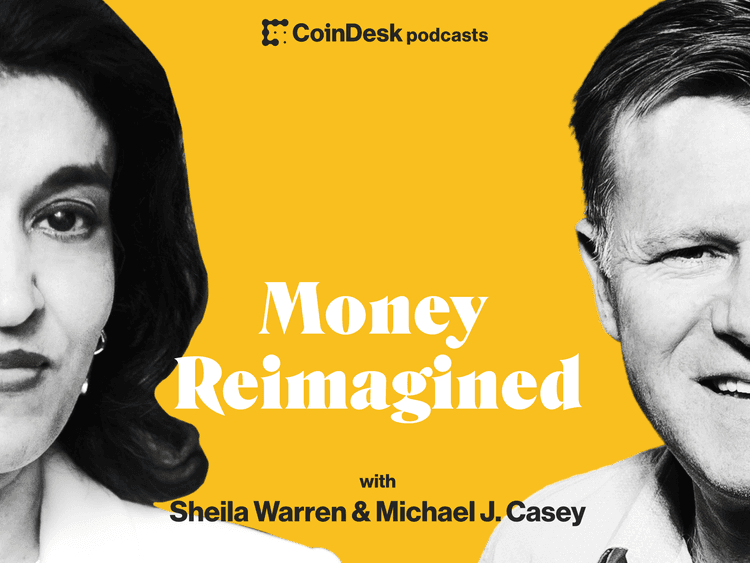Greensill's Collapse and How Blockchains Are Changing Trade Finance
Without letters of credit, bills of lading, shipping documents and trillions of dollars in global goods trade would grind to a halt. (And you thought our dependency on the Suez Canal was a problem!)
ABOUT
In our modern world, trade finance is a topic of incredible importance. Without letters of credit, bills of lading, shipping documents and trillions of dollars in global goods trade would grind to a halt. (And you thought our dependency on the Suez Canal was a problem!)
This episode is sponsored by Interpop.io
But the world’s system of trade finance, a highly complex setup involving banks, insurers, shipping companies, data providers and all manner of intermediaries, is far from ideal.
There is massive fraud – check the New York Times’ account of the recent Greensill Capital collapse for – and severe inequity in terms of who gets favorable borrowing terms and who doesn’t. Without access to the trusted data needed to prove their creditworthiness, millions of small and medium-sized enterprises are unable to obtain credit to cover the risks associated with exporting their goods. So they either run the risk of non-payment or simply cannot participate in the global economy.
As a measure of that inequity, Sheila noted in her monologue to this week’s "Money Reimagined" episode – in which we talk to two blockchain pioneers trying to fix the trade finance industries many problems – that there’s currently a $1.5 trillion global trade financing gap. But then in his first comments, Tallyx CEO Aditya Menon offered an alternative analysis of how much of the goods trade goes unfinanced and came up with a $5 trillion number. That’s about half of the global trade in goods.
Can blockchains and tokenization address these inequities?
See also: What New Investors Don’t Understand About Bitcoin Mining and Renewable Energy
As you’ll hear from Menon, as well as from Skuchain co-founder Rebecca Liao, the answers lie in figuring out how to incentivize all participants – the exporters, importers, shippers and financiers – to share data in a way that unlocks funding faster.
Skuchain is focused on making the information richer and more reliable along the supply chain. Tallyx is figuring out how to turn the contractual information such as invoices into tokens of value that can be traded in ways that allow smaller suppliers to monetize their legitimate receivables.
The problems they are trying to solve aren’t easy. But that’s what makes their work so compelling.
Blockchain projects like Skuchain and Tallyx offer a healthy reminder that beyond the razzamatazz of crypto markets and celebrity non-fungible tokens, meaningful impact is also possible if you work hard at the core problems faced by real-world entities.
--
Image Credit: Mahmoud Khaled/Getty Images News
HOSTS
Michael J. Casey is Chairman of The Decentralized AI Society, former Chief Content Officer at CoinDesk and co-author of Our Biggest Fight: Reclaiming Liberty, Humanity, and Dignity in the Digital Age. Previously, Casey was the CEO of Streambed Media, a company he cofounded to develop provenance data for digital content. He was also a senior advisor at MIT Media Labs's Digital Currency Initiative and a senior lecturer at MIT Sloan School of Management. Prior to joining MIT, Casey spent 18 years at The Wall Street Journal, where his last position was as a senior columnist covering global economic affairs.
Casey has authored five books, including "The Age of Cryptocurrency: How Bitcoin and Digital Money are Challenging the Global Economic Order" and "The Truth Machine: The Blockchain and the Future of Everything," both co-authored with Paul Vigna.
Upon joining CoinDesk full time, Casey resigned from a variety of paid advisory positions. He maintains unpaid posts as an advisor to not-for-profit organizations, including MIT Media Lab's Digital Currency Initiative and The Deep Trust Alliance. He is a shareholder and non-executive chairman of Streambed Media.
Casey owns bitcoin.

EPISODES
Crypto's Future of Policy, Politics, and the Fight for a Pro-Crypto Government
Messari’s Ryan Selkis from Bitcoin to crypto policy.
Jun 14, 2024
Embracing Nuance and Logic | The Diverse Community of Crypto
Post-Consensus 2024 reflections and examining the crypto industry and the implications of the U.S. Presidential elect...
Jun 5, 2024
‘Tokenization Is the Future of Real Assets.’
Max Boonen, CEO, and Co-Founder PV01, shares the advancements in technology and the war over regulation for tokenizat...
May 22, 2024
Future-Proofing Finance: MICA, Crypto Disclosure, and Global Regulatory Challenges
Bluprynt CEO and Georgetown Law Professor, Christopher J Brummer highlights the crucial need for financial disclosure...
May 18, 2024

The Mining Pod
Feb 10, 2025

CoinDesk Podcast Network
The top stories and best shows in the blockchain world, delivered daily from the team at CoinDesk.
Dec 20, 2023

Markets Daily Crypto Roundup
Tune in as CoinDesk runs down daily action in bitcoin markets and some of the most important recent industry development.
Dec 19, 2023

Unchained
Unchained, your no hype resource for all things crypto by former Forbes senior editor Laura Shin, author of The Cryptopians.
Dec 18, 2023

